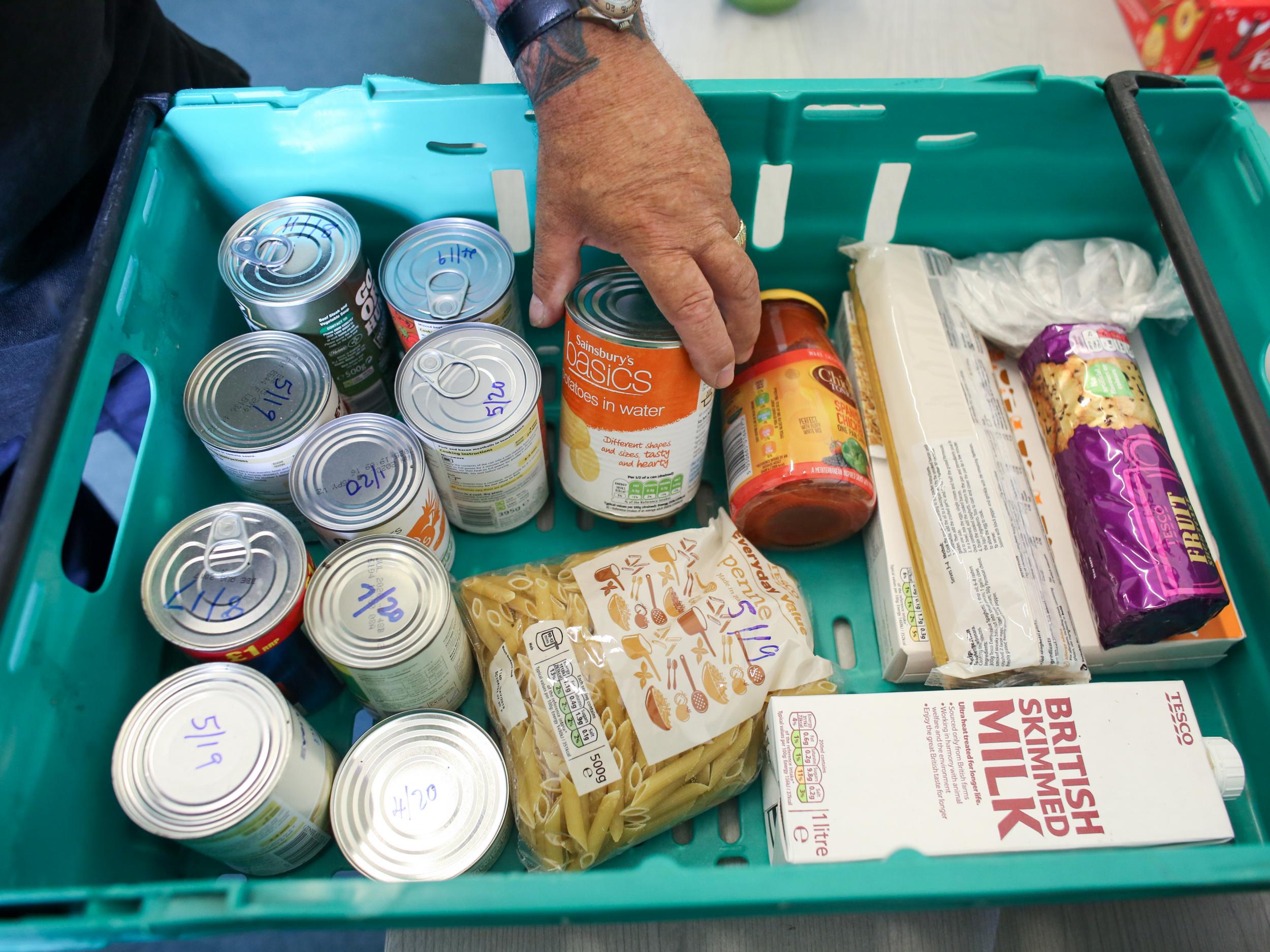UK's rising use of food banks reveals 'unfolding public health crisis', finds study
New analysis finds clear growth in food bank usage but suggest previous reports may have ‘overstated’ scale

Your support helps us to tell the story
From reproductive rights to climate change to Big Tech, The Independent is on the ground when the story is developing. Whether it's investigating the financials of Elon Musk's pro-Trump PAC or producing our latest documentary, 'The A Word', which shines a light on the American women fighting for reproductive rights, we know how important it is to parse out the facts from the messaging.
At such a critical moment in US history, we need reporters on the ground. Your donation allows us to keep sending journalists to speak to both sides of the story.
The Independent is trusted by Americans across the entire political spectrum. And unlike many other quality news outlets, we choose not to lock Americans out of our reporting and analysis with paywalls. We believe quality journalism should be available to everyone, paid for by those who can afford it.
Your support makes all the difference.The number of people turning to food banks grew by almost 14 per cent in three years, according to a new study which warned of a growing public health crisis from poor nutrition.
The study suggested that previous reports on growing scale of food bank usage might have been overstated, because it includes repeat usage, but its findings show usage is clearly “becoming more widespread”.
The author also notes this was based on data from a West Cheshire food bank with a more affluent population – and lower unemployment – than the national average.
Despite this, the paper published today in the journal BMC Public Health found one in every 100 West Cheshire residents used food banks each year.
The study used data from the Trussell Trust, and population statistics for the region between 2013 and 2015.
In 2014, the year with the highest food bank use, 1.01 per cent of adults and 2.29 per cent of children living in West Cheshire received emergency food.
Scaled up across Britain, this would amount to 850,000 people, the paper says.
Conservative MP Jacob Rees-Mogg stoked outrage earlier this year by saying he found the growing use of food banks to be “uplifting”.
Half of children making use of food banks are primary school age, according to the Trust, the largest provider of emergency food in Britain. However, the true scale is hard to pin down as there also hundreds of “hidden” independent providers.
Across this period, total food bank usage grew by almost a third (29 per cent). This includes repeat usage, which the authors say shows emergency food is inadequate for tackling food poverty in the UK.
This data also shows that a quarter of all food parcels went to the 7 per cent of users, who turned to emergency food six times a year or more.
The report concludes: “Growth in the distribution of emergency food was inflated by a rising number of people visiting the food bank on multiple occasions, indicating – as expected – that headline Trussell Trust figures overstate the scale of food bank use in Britain.
“Still, the 14 per cent rise in the number of unique recipients between 2013 and 2015 does clearly demonstrate that food bank use is becoming more widespread.”
It added that the health consequences of “reliance on emergency food – especially among those using food banks on multiple occasions – warns of an unfolding public health crisis”.
The study author, Dr Elisabeth Garratt from the Centre for Social Investigation, Nuffield College, Oxford added: "The results indicate that severe levels of poverty are present in contemporary Britain.
“Evidence of repeat food bank use demonstrates that distributing emergency food is not a long-term solution to the problem of food poverty.”
Mark Ward, interim chief executive at the Trussell Trust, told The Independent that food banks cannot be a long-term solution to hunger, and that structural reform was needed.
“We’re seeing soaring demand at food banks across the UK, and question the statistical significance of scaling up the findings from one study in one food bank.
“The Trussell Trust has always been clear that our nationwide figures are just the tip of iceberg; though our network represents two-thirds of all food bank provision across the UK, it cannot capture numbers helped by independent food banks, or people simply skipping meals.
“Only when we know the true scale of hunger can we start developing proper national solutions, to an issue that is growing more serious by the day.”
Join our commenting forum
Join thought-provoking conversations, follow other Independent readers and see their replies
Comments